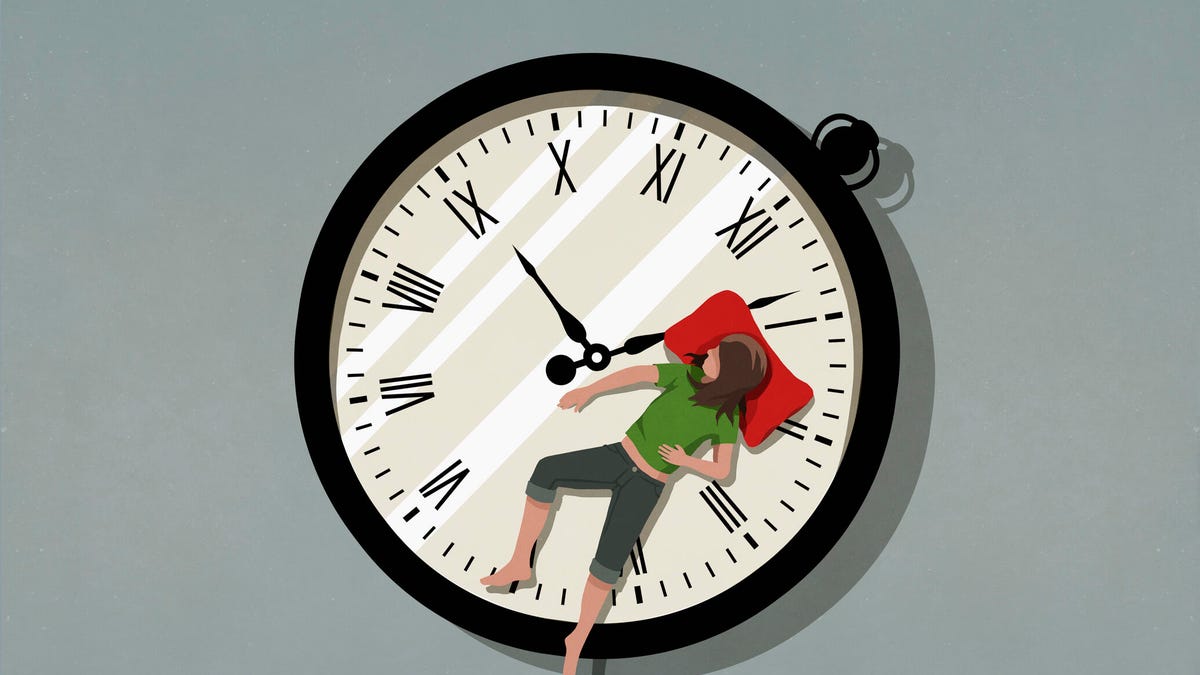6 Ways Sleep Deprivation Is Wrecking Your Body
Sleep deprivation is more than just feeling tired. It also has serious impacts on your body that could compromise your health.

Lack of sleep wrecks your body.
We've all struggled through sleep-deprived days, battling low motivation, crankiness and brain fog. Some people are so short on sleep they might think they've adapted to sleep deprivation.
No one ever truly adapts to sleep deprivation, though. You just function at a suboptimal state that you think is fine because it's become your norm. Aside from the day-to-day symptoms, chronic sleep deprivation can wreck every aspect of your health. A few of the side effects are so scary you'll want to hit your pillow, stat.
Read more: How poor sleep and high stress levels make you less healthy
1. Sleep deprivation ages your skin
Beauty sleep is real.
If you have an extensive skincare routine complete with cleansers, serums, eye creams and moisturizers, it's not doing you much good if you're chronically sleep deprived. The short-term signs are obvious: Puffy eyes, dark circles and droopy eyelids are hallmarks of sleep deprivation.
While short-term effects subside if you settle back into a healthy sleep cycle, long-term effects from chronic lack of sleep will sneak up on you as you age. Sleep deprivation affects the way your body (including skin) recovers from life's daily stressors, including exposure to sunlight, blue light and environmental toxins.
Poor sleep can impede collagen and elastin production and slow the turnover of skin cells. Sleep loss also affects the production of certain hormones, including human growth hormone and cortisol, which contribute to the health of your skin. Over time, all this can lead to premature skin aging.
2. Sleep deprivation wrecks your microbiome
Turns out, your sleep or lack thereof can impact your gut microbiome, the trillions of microbes living in your digestive tract, that largely influence your digestion, vitamin and mineral absorption, immune function, mental health, skin health and hormone balance. When your gut is messed up, it may impair any of those things.
Researchers have found that lack of sleep contributes to less diversity in the gut (more diversity is good) and can alter the functioning of your gut. Your gut even has its own circadian rhythm that can change when your brain's circadian rhythm is messed up.
3. Sleep deprivation impairs judgment and learning
Lack of sleep impairs your ability to think, focus, learn and remember.
Want to learn new things, get better at what you do and become a more productive person? You better hop into bed and make sure you get your full seven to nine hours of sleep each night.
It's well known that lack of sleep can negatively affect your productivity and focus the next day. What's lesser known is that lack of sleep can also impair your judgment, memory and learning, meaning you're not as mentally sharp during the day and you won't retain as much of what you learn or do.
Sleep deprivation affects virtually every part of your brain, but particular research emphasis has been placed on the hippocampus, an important center in your brain responsible for memory formation and learning.
Because lack of sleep can impair judgment so profoundly, it's common for people experiencing sleep loss to make mistakes or cause accidents -- something that can cause major harm if your job requires you to make quick and important decisions.
4. Sleep deprivation affects your weight
Lack of sleep obstructs weight loss indirectly in many ways: Without enough sleep, you're less likely to exercise the next day, you might make poorer food choices and you might eat more calories than you burn. Sleep deprivation can generally just smash your motivation to be a healthy person.
In addition to food cravings and less exercise, scientists believe there may be a molecular tie to sleep deprivation and weight gain. Lack of sleep can lead to imbalances in hormones, neurotransmitters and other important chemicals, which affect your appetite and satiety signals.
5. Sleep deprivation reduces your sex drive
Sleep deprivation can ruin the mood.
Scientists have found that men and women who sleep less often have lower libidos than men and women who get more sleep. This may be due to hormonal fluctuations, nervous system goings-on or the fact that sex just isn't always enjoyable when you're tired.
This is something that people don't talk about enough. If you're losing so much sleep that you can never get in the mood, it's time to take a second look at your schedule and figure out why and when sex fell out of the equation.
Not that frequent sex is necessary for a thriving relationship or a happy life, but a low libido can become a problem when it strains your relationship or lowers your self-esteem. This is an intimate and nuanced situation, so be sure to talk things through with your partner if you have one, and see a sex and relationship therapist if you think it'll help.
6. Sleep deprivation causes low moods
Be honest: How happy do you feel after a night of little rest? Even if you don't see it in yourself, you can probably pinpoint the attitude of someone who hasn't slept much lately -- they might snap at you, make snarky comments and get angry over minor inconveniences.
Sleep deprivation has been linked to mood disorders, including depression and anxiety. This isn't to say lack of sleep causes mood disorders, just that there's a correlation.
Even in the absence of a mood disorder, however, sleep deprivation can cause problems: Scientists have linked inadequate sleep to increased anger, and some research suggests that lack of sleep affects our ability to perceive and process emotions.

